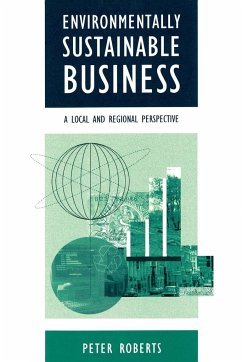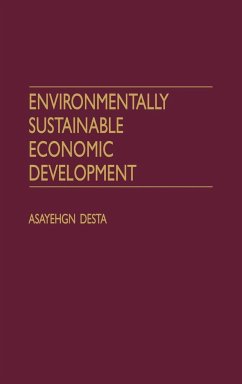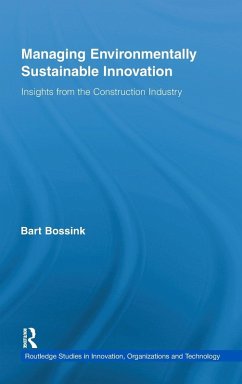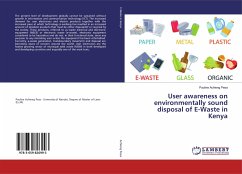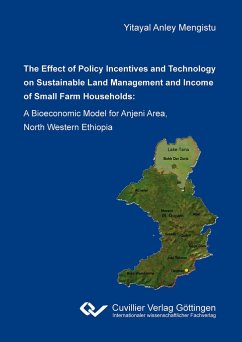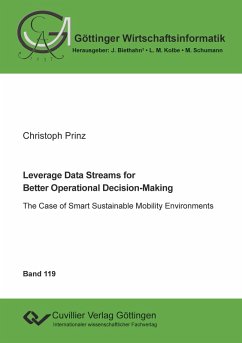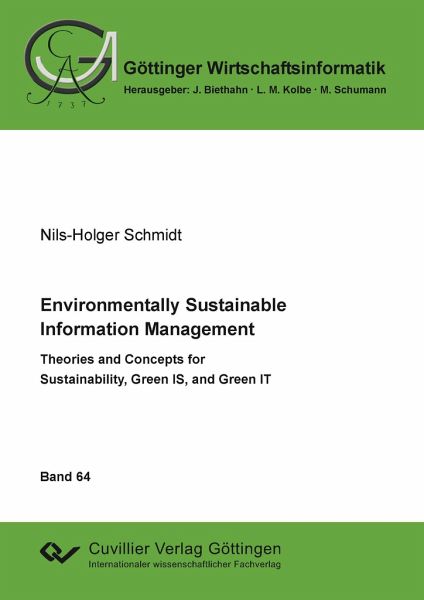
Environmentally Sustainable Information Management

PAYBACK Punkte
0 °P sammeln!
The aim of this study is to provide decision-makers and researchers with an understanding of the positive role that information systems (IS) and information technologies (IT) can play in the struggle against climate change. Owing to its extensive use of resources and energy, IT is part of the global environmental problem. However, IT also enables new IS, which help to solve the global environmental crisis. Theories and concepts that support environmentally sustainable information management and provide scientists with a starting point for further research in this field are the main contributio...
The aim of this study is to provide decision-makers and researchers with an understanding of the positive role that information systems (IS) and information technologies (IT) can play in the struggle against climate change. Owing to its extensive use of resources and energy, IT is part of the global environmental problem. However, IT also enables new IS, which help to solve the global environmental crisis. Theories and concepts that support environmentally sustainable information management and provide scientists with a starting point for further research in this field are the main contributions of this thesis. Environmental protection is commonly classified under the overarching sustainability concept. Sustainability covers economical, ecological, and social dimensions, providing a solid basis for this research. Although sustainability has been researched in general management, it has not been studied in terms of IS. Drawing from the resource-based view, stakeholder theory and transaction cost theory, this thesis provides two contributions to incorporate and manage sustainability in IS, for which a procedural model for sustainable IS management is developed. After describing sustainability in IS, the potential for IT-enabled environmental initiatives is highlighted, which is called "Green IS". A survey in which 500 people participated indicates that the market share for IT with green features could be 26.6%. The findings show that the marketing mix should emphasize disposal attributes, rather than energy attributes, and it should focus more on female rather than on male customers. This example demonstrates the overall market relevance of environmentally sustainable IT.




